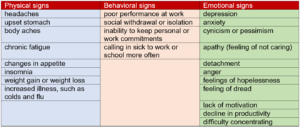We all know the importance of leadership and the responsibility that comes with it. Many skills are important for leadership, but that is not all. The missing crucial aspect is “EMPATHY.” So, let’s explore it further and see what Empathy is all about.
So as we begin our exploration, let us first get aligned on leadership.
What is Leadership?
Here, I’m considering only the part of leadership which involves interaction with team members. Below are some leadership quotes from renowned people:
Bill Gates: “As we look ahead into the next century, leaders will be those who empower others.”
Peter Drucker: “The only definition of a leader is someone who has followers.”
John Maxwell: “Leadership is influence – nothing more, nothing less.”
Warren Bennis: “Leadership is the capacity to translate vision into reality.”
Anonyms: “Coaching and Building a Team to Achieve the Vision”

So, we see empowering means having followers, influencing, coaching, and building a team. It involves working with a person. And before working with them, understanding them first. That is Empathy in broad terms.
Consider this interaction a leader might encounter:
- You are in meeting brainstorming with your team when one of them has an emotional outburst. You share concern about his/her behavior.
- However hard you are trying to motivate the team member, you are getting only a negative reply.
- Some team members do not cooperate in your initiatives and are closed off.
Leaders don’t expect emotional outbursts in the workplace, especially when their intentions are coming from a good place. Society often portrays leaders as emotionless, but that is not the case.
Emotions Are a Part of Everyday Life
The thing no one can deny is we are human beings and experience many emotions on daily basis.
As a consulting company, we are made up of People, and People are our most valuable asset. People are also emotional beings and we teach this to leaders and teams to build our People-First Culture. It is important for our colleagues to treat each other kindly and empathetically so we can enjoy working together.
If you think you’re not emotional, consider the following situations below. Are they realistic?
- Propose your Girlfriend or Boyfriend with a still face.
- Tell your kids in a dry voice with a blank stare how much you love them.
- Appreciate your team member’s effort in the same dry voice and with a stoned cold face.
You will agree that if we do things in the above way, it will not work. It will not feel authentic. So, emotions are important. You can also think of how emotionally attached you are to your kids and how much their presence in your life makes you happy. That emotion compels you to express your love towards your kids through not only words, but also through your gestures, voice modulation, and the expression on your face.
 Creating a Culture of Empathy
Creating a Culture of Empathy
The Oxford Dictionary says empathy is: “The ability to understand and share the feelings of another.”
The need is to observe the behavior and if you start seeing any of the signs mentioned below, immediately connect with him/her and offer comfort, help, and support.
Remember, Empathy means experiencing someone else’s feelings. It requires an emotional component of really feeling what the other person is feeling. Sympathy, on the other hand, means understanding someone else’s suffering. It’s more cognitive in nature and keeps a certain distance.
Being an Empathetic Leader
 When you care for them, they like you and work for you. They trust you and follow you. They see success as their success and work hard to achieve it.
When you care for them, they like you and work for you. They trust you and follow you. They see success as their success and work hard to achieve it.
Now how can you help them?
- Listen, listen, and only listen.
- Have patience, just as the physically weak person cannot walk straight, a mentally weak person cannot talk straight and to the point. You still need to listen to that babbling and figure out the problem.
- Don’t be judgmental otherwise, that person will stop sharing however you ask them to share.
- Do not offer common sense-based solutions, understand first everything.
- Do not relate their problem with yours/some other’s problem. Every problem is different and so is the context
- Never underestimate their problem, some people are afraid of cockroaches and some people can tame the Lion. Not everyone is the same.
- Become their support system. It is okay if you cannot solve their problem but even being with them is a great help
- No free advice, please. Just listening is the point.
- There is no weighing machine available to compare the suffering. Now is not the time to share your own grievances.
 Supporting Colleagues Through Emotional Situations
Supporting Colleagues Through Emotional Situations
Perficient places emphasis on wellness. That means supporting colleagues and offering a healthy environment from the start.
What is an “emotional outburst” anyway?
The oxford dictionary says that it is “A sudden release of strong emotion.”
Okay, so the reaction of the sudden release of strong emotion accumulated over time and not only at that instant. Now the question comes, can we stop the accumulation of those negative thoughts in the person, and if yes how to identify those as early as possible?
Physical Weakness:
Let me ask you one question. How will you decide whether a person is physically weak?
Your answer probably may contain something like, not able to do the day-to-day tasks properly, the movements are slow, not able to walk straight, not having enough control on hands and legs, etc.
Mental Weakness:
Now, how about mental weakness? Some people might not understand why a physically fit person cannot work.
When people are exhibiting signs of an emotional outburst, there is a need to see others as people first. This is especially important in IT because we deal with humans more than emotionless machines. People are spouses, friends, neighbors, and can play many roles in addition to employee.
This is why we regularly promote our People-First culture.
See some irony related to mental health:
- Some countries are facing a population blast and at the same time, people in those countries started feeling loneliness.
- The new generation feels more lonely than older generations When there are so many media available to connect with people
- The research is going on to make humans live longer and we still see some cases where people in their teens, twenties, thirties, forties ends their life in such young age.
Mental Health in Just as Important as Physical Health
Leaders should exhibit the same passion for their vision and goals as their people who help them reach their goals. Here are some signs you watch out for in team members who are going through mental stress.

So, as a leader, on daily basis, you track the progress against your goal. You need to observe the above signs in your team member and offer timely support so those emotions do not get accumulated.
Last thing to always consider:
In mental weakness/illness, the following three factors are always playing the role:
- Biological (Role of hormones and neurotransmitters)
- Interpersonal (individual’s personality or relationship with self)
- Cultural and Social (relationship with others, cultural and social pressure)
 Never blame or judge someone only based on his/her behavior. The other factors also need to be considered.
Never blame or judge someone only based on his/her behavior. The other factors also need to be considered.
The Value of Empathetic Leadership
Now million-dollar question for the reader: “Why should I care about this?”
- Mental disturbance leads a person to act more negatively toward other people around them, which then leads those other people to respond more negatively to them, which then increases their mental illness/weakness. Awareness of this can stop a vicious cycle.
- The team member you are dealing with maybe a small part of the world for you, but he/she can only the world for someone. Handle with care.
- We can make this world a better place to live.
Do You Want to Be Part of an Empathetic Culture?
- We need environmentally-friendly resources.
- We need techno-friendly employees.
- We need human-friendly managers and co-workers.
I’m sure my small effort towards it will bring change in the mindset of others and…
WE WILL HAVE GREAT LEADERS!!
At Perficient, we continually look for ways to champion and challenge our talented workforce with interesting projects for high-profile clients, encourage personal and professional growth through training and mentoring, and celebrate our people-oriented culture and the innovative ways they serve Perficient and the community.
Visit our Careers page to see career opportunities and more!
Go inside Life at Perficient and connect with us on LinkedIn, YouTube, Twitter, and Instagram.


Awesome DK ;)…You know what I mean :)…jokes apart…Great write-up…& look forward to the future ones…Thanks for being there always for the Team…
Thanks, Anurag. You have always trusted and encouraged me. It is a great pleasure to work under your leadership. We just crossed 500+ resources in Nagpur GDC and with this pace and your efforts, I’m sure 1000+ is just around the corner.
Awesome article sir !! If you remember I was from 2013 batch who joined Zeon. From this article I like the part in which you said good leader must listen first and have patience. Leader must believe on the team mates and should guide in any situation to teammate.
Dinesh, good writeup. Organizations following at least some of these points might have better retention rates. It shows the teacher within you.
good job dinesh
@Shrikant: Of course, Shrikant, I do remember you. And whatever you said, I couldn’t agree more on this. We do need great leaders who not only passionate about achieving the goals but taking care of their teammates as well.
Thanks for your appreciation and comment.
@Rahul: Thanks and you brought a good point. Now I see, Organizations have started acknowledging it and we will see the changes in the near future.
Sometimes I feel, raising a kid and raising a junior requires the same mindset. You got to understand them and help them grow.
As a teacher, well yes teaching is my passion but the real objective is to make the new generation a better generation than the current one.
@Sandeep, Thanks for taking the time and reading my contents. I’m happy that you liked it and moreover, you also put your comments. That is an energy booster for me.
You were and you are always an inspiration sir, whether it is a training on some topic or guidance on some problem. Great to read your thoughts again after a long time and as always I have something new to learn.
Happy blogging. Excited to read more.
-Nishant
Thanks, Nishant. And I do miss those training days and pushing you guys to reach your potential. Keep growing like this and keep learning too.